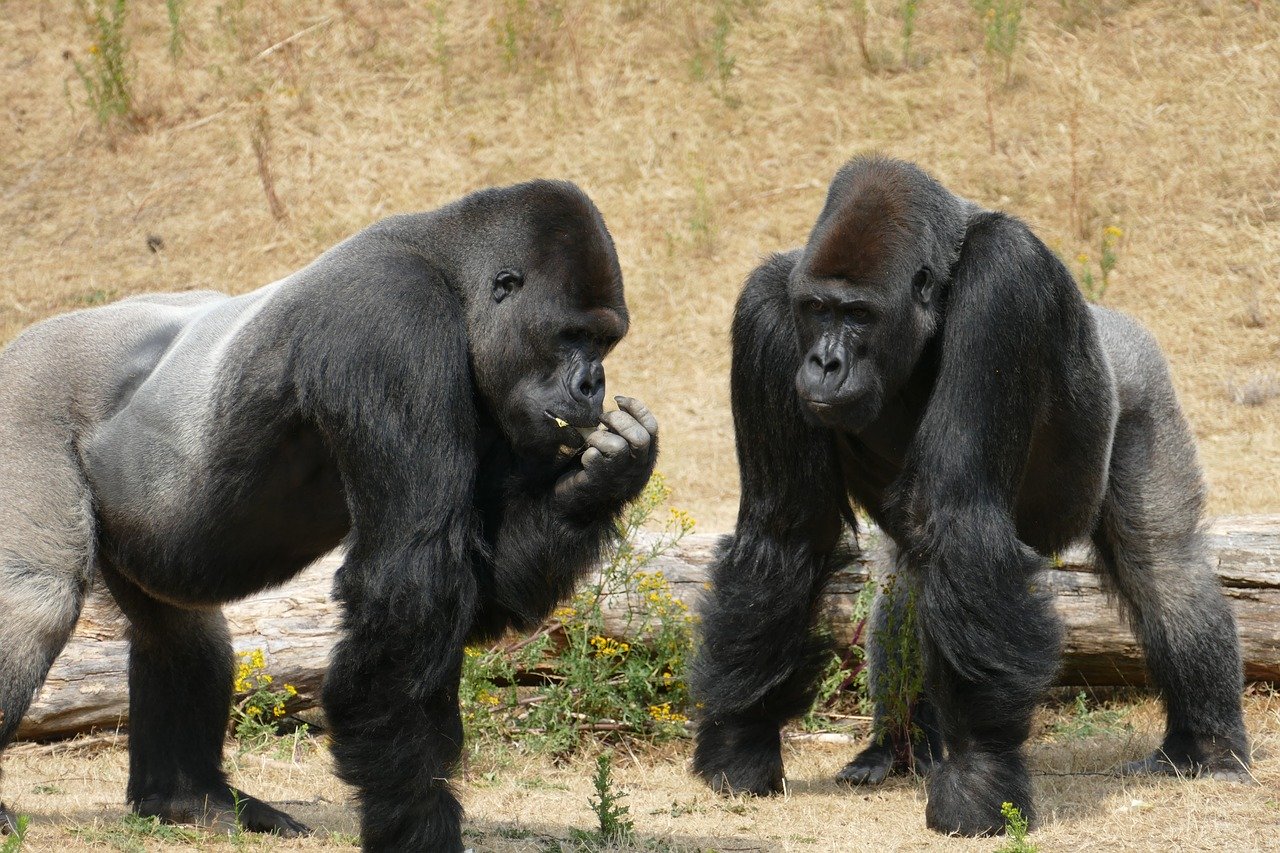
Great apes are being placed on lockdown across the globe to help reduce the threat of these animals being infected with coronavirus.
A lockdown on great apes has been implemented by various facilities worldwide in order to minimize the threat of coronavirus infection. In Africa, gorilla tourism has been suspended while sanctuaries for apes, like orangutans, have been closed from the public.
While there has been no case yet of great apes getting infected by the virus, there are growing fears that they are also at an equal risk with humans.
Dr. Kirsten Gilardi, chief veterinary officer for Gorilla Doctors, said: "We don't know if it's infected mountain gorillas; we have not seen any evidence of that. But because mountain gorillas are susceptible to human pathogens, we know that they can develop respiratory illness."
Gorilla Doctors provide veterinary care to gorillas in the forests of Rwanda, Uganda and the Democratic Republic of Congo. Mountain gorillas or Gorilla beringei beringei, which can only be found in these three countries, are an endangered species of great ape.
All three countries have recorded cases of the coronavirus so gorilla tourism has been suspended.
Precautions in place
Dr. Gilardi, who is also a veterinary professor at the University of California, Davis, said "Much of what we're practicing right now, in terms of social distancing, and self-quarantine, are at the heart of the recommendations for protecting great apes as well."
Even prior to the coronavirus outbreak, humans were already asked to stay seven meters away from gorillas at all times.
Under the new guidance from the International Union for the Conservation of Nature (IUCN), a minimum distance of 10 meters from great apes is recommended. Human visits should also be reduced to the minimum needed to ensure their safety and health.
The IUCN guidance also does not permit people, who are ill or who have been in contact with a sick person in the preceding 14 days, to be near great apes.
While habitat loss and poaching remain the main threats to great apes' survival, viruses have also been a concern, with infectious disease now listed among the top three threats to some great ape groups.
Research has shown that chimpanzees can catch the common cold virus while thousands of chimpanzees and gorillas in Africa were believed to have been killed by the Ebola virus.
Serge Wich, professor of primate biology at Liverpool John Moores University, mentioned that governments have halted tourism activities related to great apes while extra measures are being implemented by researchers and sanctuaries.
Wich said: "We don't know, if they were to get infected, what the health effects would be, but obviously given the health implications for people it's a risk we do not want to take with great apes so these precautions everyone's taking are an important step to try to reduce that risk."
Susan Sheward, founder and chairwoman of Orangutan Appeal UK (OAUK), argued: "This disease could be fatal for the already critically endangered orangutan, it is a risk that we cannot afford take. OAUK will do everything it can to make sure that the orangutans at Sepilok stay healthy and safe."






